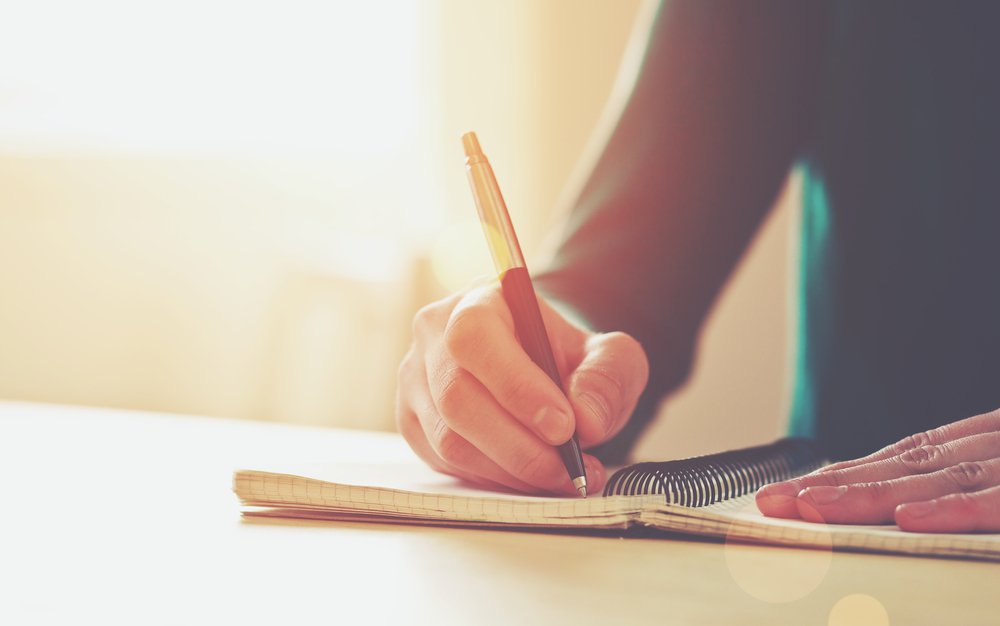

Yesterday morning I glanced at my phone and felt a sudden onset of panic: It was March 14th. 5 days after March 9th.
March 9th is the birthday of one of my dearest and oldest friends, Gene. We met at the refugee settlement in Italy, when we were both hopeful and lost teenagers, trying to make our way to the U.S. together with our families.
The bond we formed by sharing a life-changing experience of immigration together has kept us close, even as our lives took very different paths over the past 28 years. And during all this time, I have never missed Gene's birthday.
Until this year.
I texted him as soon as I realized that I'd missed it and flooded the screen with as many apologies as warm wishes. But I felt awful. He is someone very important to me and I forgot.
I was really beating myself up.
How could I forget something so important? How caught up am I in my work and life that I forgot one of my dearest friends' birthdays?
Amidst my self-flagellation, I remembered the advice I had just shared with the group who had taken my Gift of Self-Compassion course over the previous month.
I talked about the idea that it's not helpful to treat ourselves harshly, even when we make a mistake. Instead, a better practice is to reflect on what we did with mindful awareness and re-frame how we talk to ourselves about it as if we were talking to a friend or someone we cared about.
But I was having trouble taking my own advice. I felt that being compassionate with myself for making this mistake was like cheating and giving myself a pass. If I let this slide, wouldn’t I just keep forgetting important milestones and become even more careless?
And then I realized something. Something really huge.
The way I was thinking suggested that the act of self-acceptance and compassion is the end point:
I make a mistake --> I treat myself with self-acceptance --> I get a pass. Done, the end.
But it’s the opposite: Self-compassion is the BEGINNING.
I make a mistake --> I treat myself with self-acceptance --> I can honestly and openly reflect on what happened --> I can improve going forward.
Research has shown that people who are more self-compassionate recover from failure better and are more likely to try again after a failed attempt. Because they don’t beat themselves up as much when they fail, they are less afraid of it. Which means they keep trying.
I've had so many people tell me they are afraid that being self-compassionate means just accepting everything as is. They are afraid it won't motivate them to improve.
But the reality is exactly the opposite.
Treating yourself self-acceptance, which means honestly admitting your mistake and responding in a way that you would if your friend or someone you care about had made the same mistake, will help you see more clearly what you might need to change to not make it again.
It's not something you do for the past you the one who made the mistake (like, giving that self a pass). It's something you do for the future you, the one who can learn from this mistake and improve.
My friend Gene wrote back to me a few hours after I sent him my huge apology and birthday wish text. He said I was silly to apologize, since I’d never forgotten his birthday, and thanked me for being there for 28 years. He was compassionate in his response and it reminded me to be more compassionate in my own.
Being kind to yourself after you make a mistake isn’t the end, an act of giving yourself a pass and never doing anything to improve.
It’s the beginning, the first step towards being kindly honest with yourself and learning what you might want to do differently.
This act of self-acceptance is an amazing gift to the future you, the one who will do better because today’s you treated yourself with kind honesty.
You deserve the gift of your own kindness.
Don't miss your happier boost!
Subscribe to our weekly email to get practical tips and inspiration to help you feel more joyful and resilient.


